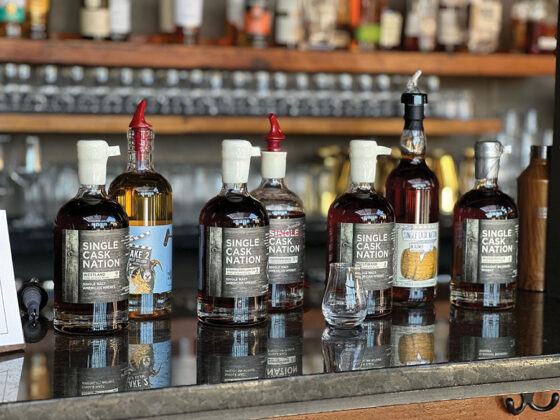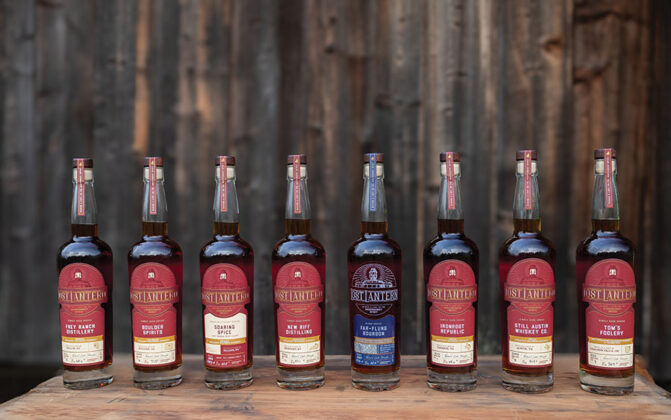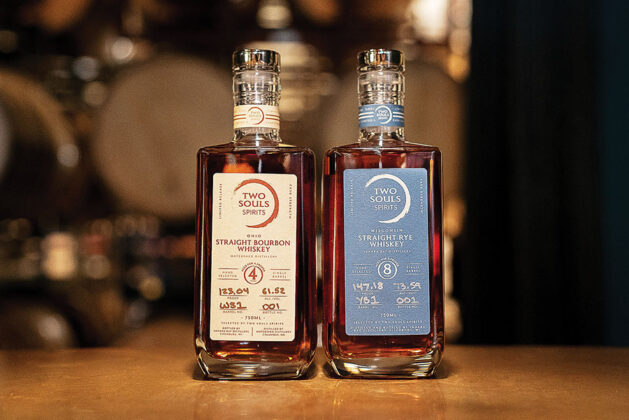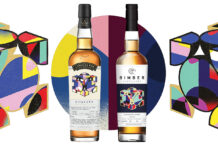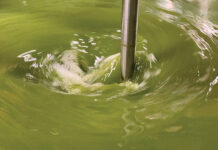Historic independent bottling giant Gordon & MacPhail caused quite a stir when they announced in 2022 they would no longer be purchasing new make for filling casks. The move followed the opening of their own distilleries, but also came during a steady climb in Scotch prices. Meanwhile, in the United States, independent bottlers of craft spirits have risen in popularity, winning customers and awards in the process. With a rapidly changing global whiskey market, a growing movement of innovative craft spirits, and a passionate consumer base, the world of independent bottling is changing fast.
Spendy Scotch Leads to New Sources
The effects of the Scotch price hike on independent bottlers is difficult to calculate. Some are simply charging ahead despite the costs. “We can all assume that the prices are only going to go up,” laments Tom Smith, senior director of the Scotch Malt Whisky Society USA, “but we’re continuing to work widely across Scotland with producers sourcing not just mature stock but new make fillings as well.” However, sheer volume comes into play. SMWS releases 20 to 30 casks per month in the U.S. alone, so buying many casks at once helps them keep costs down.
For companies working with smaller volumes, prices have become prohibitive. That’s led them to look elsewhere for interesting spirits. For John Hsu and Lorri Kern, co-owners of Raising Glasses, an independent bottler based in Massachusetts, buying a cask or two of aged Scotch has become impossible from a cost standpoint. “If it’s anywhere from 10 years or older,” explains John, “you’re paying ridiculous prices.” So they’ve looked elsewhere, including rum from around the world as well as American single malt. “One of the reasons we got into rum is that there was just so much variety and a lot of quality, a lot of really well-made stuff that’s competitive on the American market,” Hsu explains.
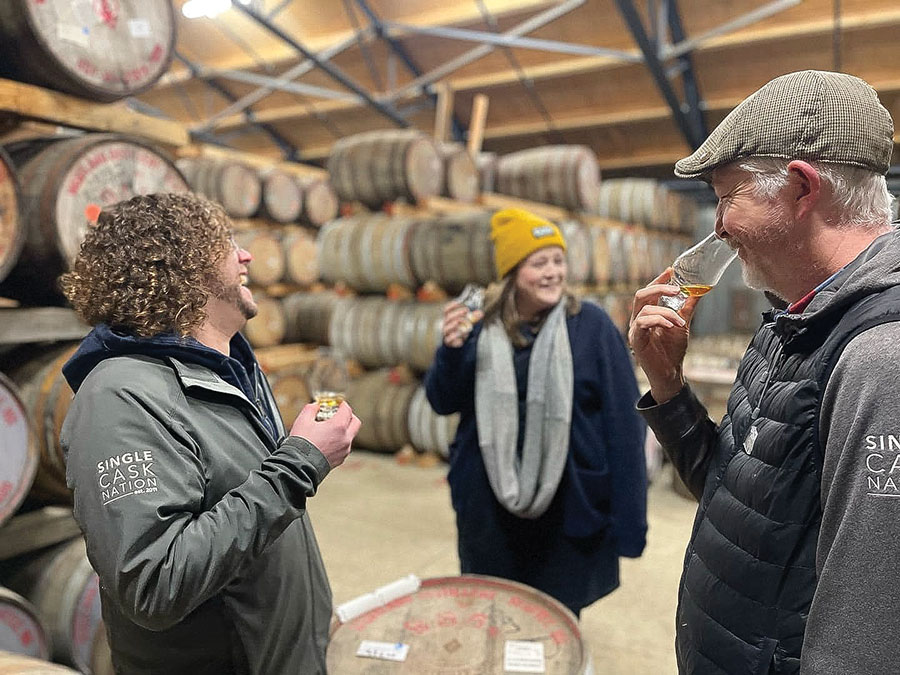
But it isn’t just the smaller bottlers looking outside the traditional producers. Peter Currie, national sales manager for Shand Import, which owns Duncan Taylor, says they’ve also been asking themselves, “What other interesting distilleries are there that we can pick up on?” Plenty of other independent bottlers are asking this same question, and it’s led them to the craft scene in the United States. Single Cask Nation, That Boutique-y Whisky Company, and Scotch Malt Whisky Society, among others, have all worked with American distillers. Although American whiskey is usually associated with Kentucky and Tennessee, bottlers are interested in looking everywhere across the states. “We’re going to work harder to discover those smaller family-run distilleries that are producing exceptional spirit,” Smith promises. “Regardless of where they are, whether they’re in Kentucky or Florida.”
Part of the interest in smaller producers comes from educated and adventurous consumers who are interested in new distilleries that are experimenting and pushing boundaries. “If you look to places like Australia and parts of the U.S. where they’re doing some really fucking cool stuff with different materials,” explains Rosie Milsom, global head of new product development for That Boutique-y Whisky Company, “I think there’s a lot more openness to the consumer around trying new things from different places and being more open to innovation. I think we’re seeing the whiskey world change a little bit at the moment. And for the better. I think that the identity of the whiskey industry is getting a lot more open.”
That openness isn’t universal. For companies like the Scotch Malt Whisky Society, Scotch is still their bread and butter, accounting for 95% to 97% of their business. It’s in the name, after all. But for a group with thousands of members around the world, there is still plenty of interest in newer distilleries. “Thankfully, we have all these wonderful distilleries in places like Waco and Seattle, Brooklyn and Chicago,” says Smith, “to keep things exciting for the members who are into American whiskeys.”
The Benefits of Sourcing Closer to Home
While innovative and craft spirits may be a side project for larger bottlers, they are the primary focus of some new players. Many newer American independent bottlers — Lost Lantern Whiskey, Two Souls Spirits, and Pekut and Carwick to name a few — are working almost entirely within the world of American craft distilleries. Most are driven by passion for the craft. “I just found [craft spirits] really interesting,” explains James Estrada, co-founder of Two Souls Spirits, which bottles bourbon, rye, and single malt from craft distilleries around the country. “I liked how each individual product was different and represented the area that it was made in.” The proliferation of new, regionally focused distilleries has been an inspiration to many. “We were still living in New York drinking independently bottled Scotch and having conversations about how we really wish that there was an American independent bottler because there were so many distilleries popping up that we didn’t have access to,” says Nora Ganley-Roper, general manager of Lost Lantern.
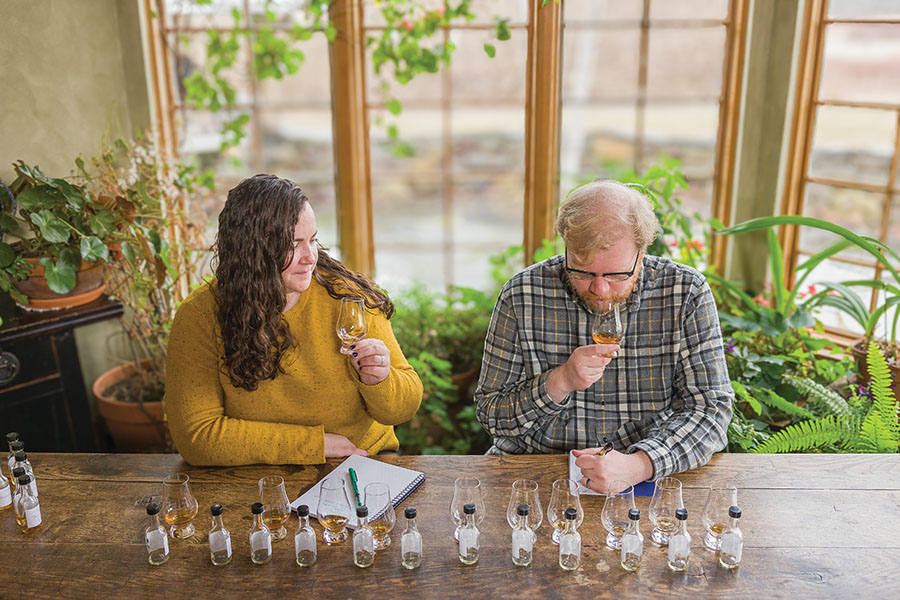
Increased access is another major theme for many new independent bottlers. “The more I got into craft, the more I realized the challenges of just getting your name out as a small producer when you’re trying to compete for shelf space with Maker’s Mark,” explains Estrada. Many smaller distilleries struggle to share their spirits on a national scale, but Two Souls Spirits is able to bottle a cask from Ohio, Wisconsin, or New York and ship those bottles to dozens of different states.
The wider reach of an independent bottler can be beneficial to distilleries of all sizes, even those that already have a national or even international footprint. “It’s a great way to grow an audience with a shared passion for the whiskey and the craft,” says Ana Hinz, business development director for Westland Distillery, which has worked with several independents. Many distillers find a similar boost in recognition. “They’ve helped elevate our profile,” explains Whiskey del Bac co-founder Stephen Paul, on its relationship with Lost Lantern. “We’re thrilled every time they do something with us.”
Beyond the wider reach, many producers are excited to work with gifted spirits professionals who are able to bring new perspectives to their work. “Independent bottling is a great opportunity for consumers to experience a distillery through a different artistic lens,” says Hinz. “We’re very proud of our liquid, so it’s exciting to see how independent bottlers layer their creative vision on top of our own.”
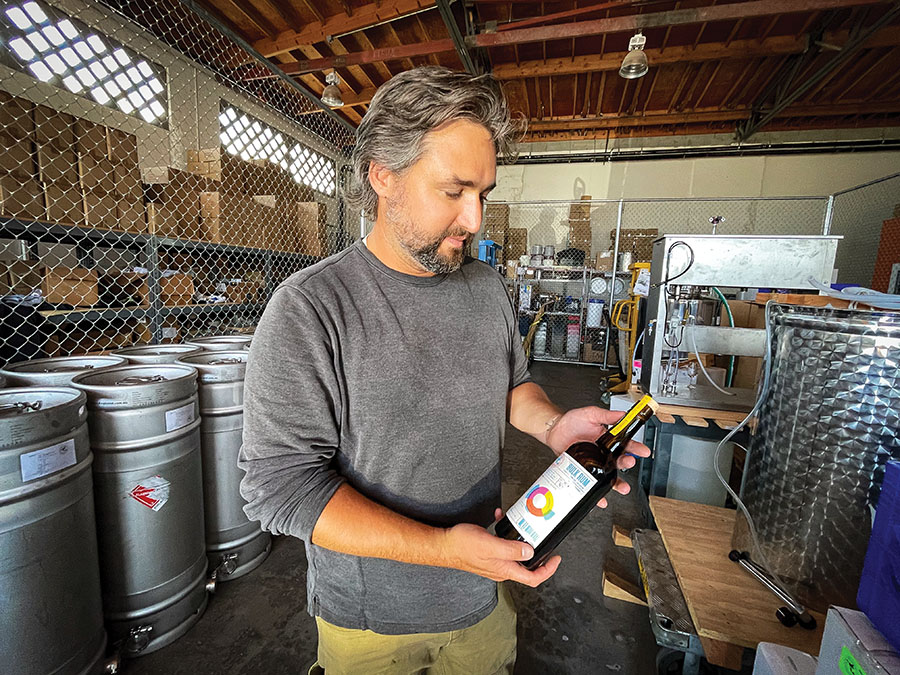
Nate Darling, founder of Pekut and Carwick Independent Bottlers, agrees. “Working with distilleries as an independent bottler, one of the advantages is that you get to peel off things that don’t fit in the normal lineup.”
On the other hand, it can be a challenge to find a cask that is unique and interesting without straying too far from a distillery’s usual profile. “We want to find something that feels like it has a Lost Lantern lens on it,” says Ganley-Roper, “but can still get someone excited about that distillery and know that when they go in and pick up a bottle from that place, it’s going to be in the same ballpark.” Amanda Beckwith, lead blender of Virginia Distillery agrees it can be a fine line finding a cask that works for the bottler while still “making sure that the barrels they’re selecting really do tell our stories.”
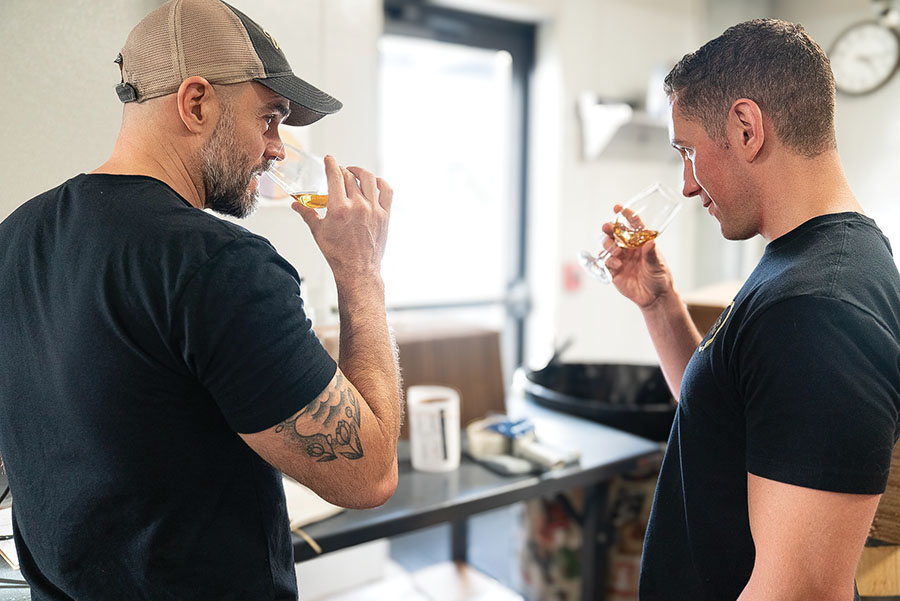
This process can be made much easier when working with an independent bottler that sees their role as partially educational. Joshua Hatton of Single Cask Nation likes to ask the producers they work with, “What’s a really good example of whiskey from your distillery that you think represents you so we can help teach people about your distillery?”
Trust between distiller and bottler is crucial to making these partnerships work long term. “It’s a collaboration,” says Hatton. “It’s a distillery trusting in the bottlers they feel will do right by their brand. And our aim is to ensure that we’re always that independent bottler that will champion whomever partners with us.”
Oftentimes these relationships begin long before the samples are tasted. Paul remembers meeting Adam Polonski, “Whiskey Cask Hunter” of Lost Lantern, well before his Lost Lantern days when he visited the distillery in Arizona and the two “really became fast friends.” That friendship, built on a shared love of whiskey, eventually became a brilliant bottling partnership. Beckwith agrees. “It’s all about relationships.” She fondly recalls her friendship with Hatton and their shared drams on a porch in Virginia. Milsom isn’t surprised by that kind of spirit-forward industry networking. “I think all of these things start off with someone who loves whiskey having a conversation about whiskey,” she observes. “And quite often that passion just comes through in everything.”

